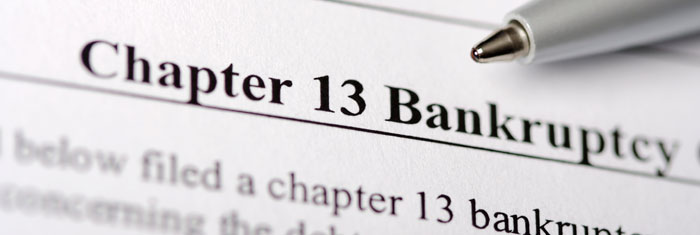
How Chapter 13 Can Benefit You
If you have a steady income and assets of any value, Chapter 13 bankruptcy may be a better choice for you than Chapter 7. You can do things with a Chapter 13 bankruptcy that you cannot do with a Chapter 7, such as keep many of your assets by arranging to make payments to the trustee, often at a reduced interest rate.
What Is A Chapter 13 Bankruptcy?
A Chapter 13 bankruptcy consists of a plan for repaying some or all of your debt to your creditors. Unlike Chapter 7, which immediately discharges unsecured debt, Chapter 13 bankruptcy plans may include partial or full payment of both secured and unsecured debt, depending on your assets and the amount of income you have to devote to repayment. There are some debts that must be paid in full. These are known as “priority” debts because they take precedence over unsecured debts. In some cases, a creditor may agree to allow you to pay some of the debt after discharge, but in other cases you must arrange to pay the debt in full over the life of the plan. Priority debts are often those that will not be discharged in any bankruptcy, such as taxes, alimony, child support and student loan debt. Another important classification of debts in Chapter 13 is secured debt. If your debt is secured by an asset that could be surrendered to the creditor, it is considered a secured debt. You will need to include these items in your Chapter 13 bankruptcy plan if you want to keep them. Depending on where you file your bankruptcy, you may be required to make payments on secured items through your plan or outside your plan. You may also be able to negotiate for a lower interest rate by agreeing to pay through your plan. Finally, debt such as credit card and medical bills are non-priority, unsecured debt. Normally, you can pay less than the full amount of these debts under a bankruptcy plan; in some cases, you will be able to discharge almost all of your unsecured debt by filing Chapter 13.
Should I File Chapter 13?
Whether or not you should file Chapter 13 depends on the amount of your debt, how many assets you wish to protect and whether you have a steady income. Some people do not qualify to file Chapter 13; others can but still choose to file Chapter 7. Contact the bankruptcy attorneys at Oswalt Law Group today to learn more about your options.
